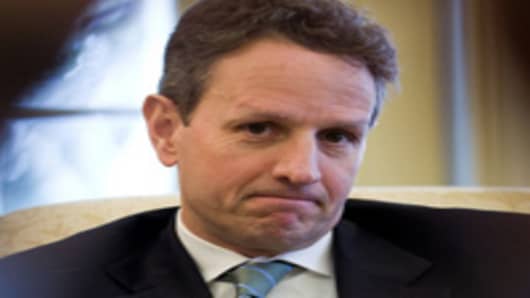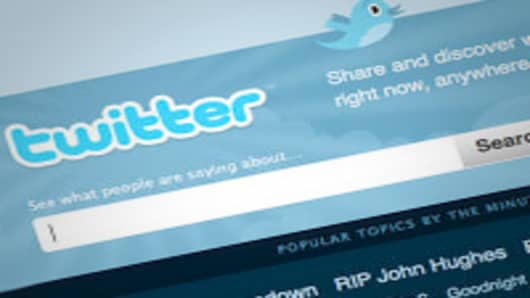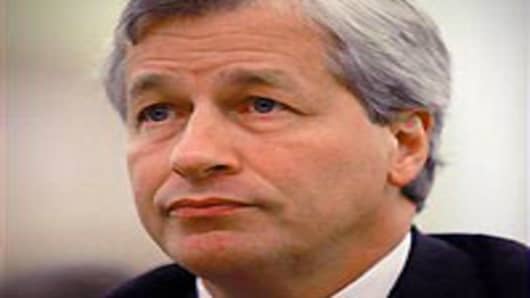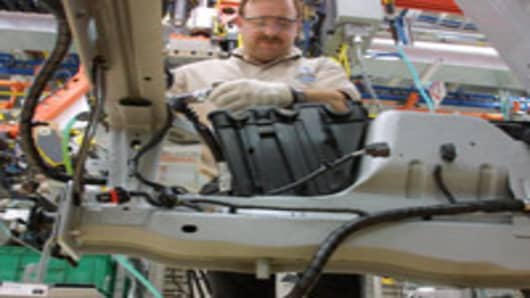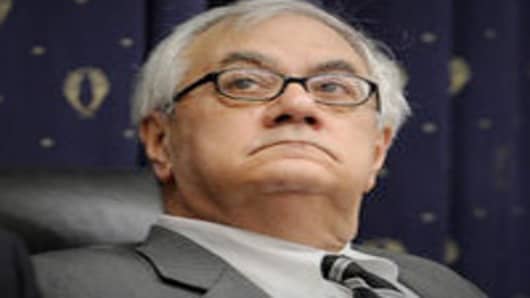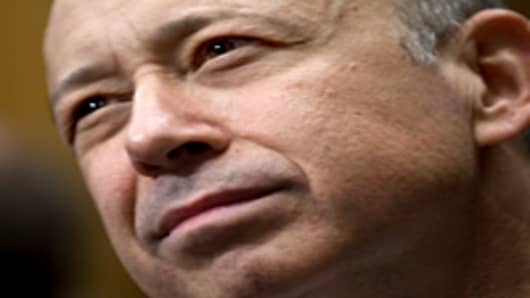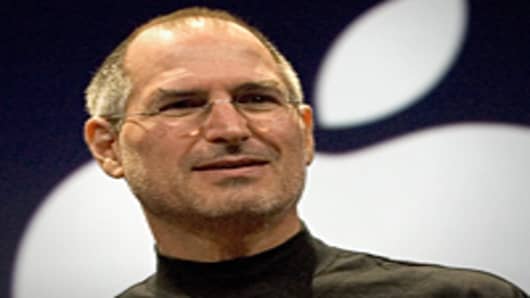More than most years, 2009 has been about winners and losers.
For many, it was the winter of our discontent, as stocks sank to multi-year lows, jobs disappeared by the hundreds of thousands and a new administration struggled for traction. The reputation of the U.S. took yet more hits. Losers were omnipresent.
Spring brought the seeds of hope and those tired green shoots of revival, as the market began to climb higher. By summer the worst of the financial crisis seemed behind us. A return to our winning ways seemed possible, if not certain.
As we head into the final months of 2009, we thought it would be interesting to identify the big winners and losers in what has been an extraordinary year.
In some cases, the difference between a winner and loser is slight, subtle and often in the eye of the beholder—who can be a victim or a beneficiary.
That’s why we want readers to weigh in and vote on a variety of people and concepts. We will not ask you to vote on the obvious (President Obama), as you already had that chance in 2008 and will possibly have another one in 2012.
Beyond the national political figures and big-name corporate bosses, there are companies, concepts and entities that qualify for consideration.
We've tried to offer a selection that is truly debatable; and in many cases, the vote could go either way.
We’ll give you a week to vote on the winners and losers of 2009 and then report back with results and rankings on Dec. 1.
So, here’s our cast of characters and some of the story lines that figured into the story of 2009.
Ben Bernanke: Hero or Goat?
Ben Bernanke
Chairman, Federal Reserve Board
Talk about a potential toss up. Bernanke is a hero to some and a goat to others.
Critics say he abused the powers of the Fed in providing liquidity to the markets and companies (AIG , Citigroup ), became overtly political in helping execute administration policies (some say partly in the hope of getting nominated for a second term) and has planted the seeds of inflation, for which we’ll pay dearly down the road.
Fans of Bernanke consider him a genius, whose innovative initiatives saved the economy and the country. They also point to his self-effacing, plain-talking style (compared to Alan Greenspan) and his efforts to demystify the Fed through greater transparency.
Voters of both persuasion may cite the Fed’s enhanced powers in proposals for a new regulatory framework and Bernanke’s role in the policy debate.
Too Big To Fail: Can't Lose For Winning
Too Big To Fail
Three-decade-old government policy about intervening to save big financial firms.
The government rescued AIG, Citigroup and a number of other big financial services companies, but critics say the concept was abused by some in Congress and the Bush and Obama administrations to include big industrial companies, such as General Motors.
Comptroller of the Currency (1981-1985) C.T. Conover coined this term around the time of the near-failure of Continental Illinois National Bank And Trust, then the nation's biggest bank. Nonetheless, big back then was was a lot smaller than today’s financial behemoths, such as Bank of America and JPMorgan Chase .
Size supposedly matters here because advocates say these firms are simply too big to go out of business without causing massive collateral damage to the economy (see Lehman Brothers). Preventing such damage may require government intervention, be it a multi-billion dollar bailout, an outright federal takeover (Fannie Mae and Freddie Mac ) or a government-sanctioned buyout by, yes, an even bigger firm (BofA-Merrill Lynch, Wells Fargo -Wachovia deals.)
New regulation has been proposed to help the government better deal with this situation. But critics, especially GOP lawmakers, say it only perpetuates the bailout culture, and will make little difference. They recommend giant companies go through bankruptcy court, either liquidation or reorganization, like all the others.
Before you jump to conclusions, consider that "too big to fail" could be the ultimate winner. At its simplest, the concept worked because every company the government tried to save is still in business.
Timothy Geithner: G Man Redefined
Timothy Geithner,
Treasury Secretary
Anyone who replaces Henry Paulson as Treasury Secretary is bound to be either a major winner or loser simply by taking the job.
Like his colleague Ben Bernanke, Geithner may have been both a winner and a loser at various times in the past year. He appeared to flounder in the beginning but has since appeared to have grown into the role.
Geithner's failings or successes are too numerous to mention here. His financial stability plan was widely criticized in both Democratic and Republican circles in its early iterations, but the stress-test exercise for the 19 major banks receiving TARP funding turned out to be both public relations genius and stock market turnaround catalyst.
On the downside, Geithner looks to have been asleep or under-estimated the bonus scandal at AIG and he has not been a particularly inspiring or articulate point man for the administration (but that may be as much a reflection on his boss' speaking skills).
The Treasury Secretary also appears to have spendthrift instincts, a short fuse and bad luck in his personal tax and real estate matters.
On the positive side, he is tireless, smart and versatile (he seems at home with both domestic and international issues).
Rick Wagoner: Dude, Where's My Car Company?
Rick Wagoner,
Ex-Chairman and CEO, General Motors
Losing your job is not normally a good thing. But after Wagoner was forced out early this year as part of the government's bailout of General Motors, he might be considered lucky to be free of the automaker's misery—and therefore a winner. His retirement package was certainly adequate, perhaps grossly inflated to some, so he certainly wasn't a loser financially.
By one measure, Wagoner is a hero because he managed to secure a bailout for the automaker, despite much opposition, and save his company. Its workers—UAW members—also did well by the terms of the deal. Bondholders and shareholders—and the American taxpayer—were the big losers and Wagoner should lose some sleep over that.
At the same time, Wagoner could be seen as a loser because he was pushed out while UAW boss Ron Gettelfinger was allowed to keep his job.
Critics of Wagoner, however, can say he presided over GM's decline and did little if anything to stop it, leaving management no choice but to seek a government bailout, which, of course, is a failure, and thus loser status. Wagoner's decade-long tenure is also arguably short on hits, if you exclude the whole SUV phenomenon, which some might say is the industrial sales equivalent of methamphetamine.
Carol Bartz: Yahoo or Aye Yay Yay?
Carol Bartz,
CEO, Yahoo!
Judging by the vote, this is probably the most obvious case of too-soon-to-tell and we'll likely be revisiting the Bartz era at Yahoo! next year.
That may be nothing for a fighter like Bartz, who's overcome significant prersonal and professional challenges in her life.
Bartz deserves credit for dropping the fortress mentality that marred the company's image. She also demonstrated a Machavellian wisdom (Keep your enemies close...) in negotiating a search deal with Microsoft . And, finally, what's not to like about cost cutting, some even say restructuring?
The difference—and the key to both the future of Bartz and Yahoo—is that one is a short-term exercise, the other long-term strategy. There's lots of speculation that Bartz's job is to get the company in shape for a sale. If that's true, and Bartz succeeds, it's a nice coda to her career or maybe the beginning of a new one. If she fails and/or the price ain't right, then Bartz can add pallbearer, not turnaround artist, to her resume.
Kenneth Lewis: Most Wanted
Kenneth Lewis,
CEO, Bank of America
Lewis, of the tight upper lip and Southern gentleman drawl, is an unlikely scapegoat for the financial crisis, both as a manager and an individual.
He is neither incompetent nor flashy, and unilikeCitigroup'sVikram Pandit seemed to be doing a pretty good job of running his business before the crisis hit.
After that, Lewis—and to a lesser extent, BofA—became a case of too-big-not-to-take-the-fall. And fall he has. Lawsuits, accusations, Congressional appearances and, finally, premature resignation followed by forefeiture of this 2009 salary and bonus.
Lewis' supporters might have advised him to "just say no"—to the acquisitions of Countrywide Financial, Merrill Lynch and Treasury SecretaryHenry's Paulson'sgodfather-like offer to participate in the TARP program.
When it came to the "he said-they said" controversy over the Merrill acquisition, could Lewis have ever imagined that the Obama administration, a Democratic Congress and the court of public opinion would side with a Wall Street kingpin, rather than one of their own, even if Paulson and Bernanke, both Republicans, had been villified by the political opposiiton?
The Merrill pay scandal also seemed small change compared to the AIG one. But in the latter case, the government could not be expected to take any responsibility.
Lewis may be a real winner because he has taken the high road in giving up both his job and 2009 pay. He is probably all the richer by walking away from an inglorious episode in American history.
The American Homeowner: Home Alone
The American Homeowner,
America Inc.
We couldn't offer the American taxpayer because that is unquestionably a loser. Homeowner, however, is a tricky one, as there are winners and losers involved in this category.
Government efforts—from the tax credit for first-time buyers to artificially low interest rates to foreclosure prevention programs—have been a sweet deal for some. Then, of course, everything you might need for a home—furniture, garden acccessories, cars, contractors—has been on available at cut-rate prices.
Of course, that's little consolation for the people who have fallen victim to foreclosure, have an underwater mortgage, or can't sell sell their house. Oh yeah, and prices are down sharply, so many a small fortune has been lost. For those holding on, local property taxes have gone up just the same.
Twitter: Trick Or Tweet
Twitter,
Social Networking Site
What are you doing? In other words, why have we included Twitter? This one can't be handled in 140 characters so give us 140 words.
It took a few years to become a household name, but once you are embraced by social media types, you seem indispensable.
Twitter gets points for advancing communication and demerits for expediting the destruction of the English language through incessant and cute abbreviations. The technology apparently is basic enough to preclude any kudos.
Twitter has won a lot of attention, but has yet to achieve a winning formula for making money. That and it's completely superfluous. (99 words)
Jamie Dimon: Dimon Jim
Jamie Dimon,
Chairman & CEO of JPMorgan Chase
Dimon is like the Roger Federer of banking: He makes winning look easy, keeps improving his game and is both an offensive and defensive power. (No wonder his company sponsors the U.S. Open.) He largely kept his company out of the risky businesses that sunk or disabled others, but was ready to get into the game when the price was right.
Dimon has managed to appear in a league of his own and look like he was doing the government and country a favor by acquiring Bear Stearns and Washington Mutual and taking TARP money with a smile on his face. (He also smiled in returning it.)
Those moves turned Chase into the No. 1 banking firm in the country by several measures. Size is not one of them.
The man who studied under Sandy Weill, the father of the financial supermarket, is the rare CEO who is candid, caustic and yet charismatic. For instance, he publicly agreed and disagreed with the government's assessment of the industry's moral fiber and lending conditions, as well as federal initiatives to deal with the problems.
Dimon may also be the only banker to receive kind words from President Obama, who said he had done a "pretty good job."
This year nine capped Dimon's five-year comeback in the private sector, delivering a career year. He's young enough, 53, that another career—politics, for one—shouldn't be ruled out, especially now that there's some visibility on the succession issue.
Though little, if anything, qualifies Dimon as loser, there's always the potential. He hasn't been at the top that long and becoming a legend, as opposed to a leader, will require many more years on the job.
UAW, The Company You Keep
United Auto Workers Union
You have to wonder how the average resident of Detroit, even Michigan, sees the UAW. Amid the overall despair and destruction, the massive union has managed to hold on to a way of life for its members: Jobs, benefits and now an ownership stake in GM and Chrysler. Plus union boss Ron Geittelfinger got to keep his job, unlike GM CEO Rick Wagoner.
The fact that the union and management are both responsbile for GM's demise didn't seem to matter to the Obama administration. The "labor-management partnership" that sucked up profits and gave the UAW seats on the boards doesn't apply as much to losses.
Bankruptcy cases are often bad for union contracts; in this case, the companies' government-assisted Chapter 11 might be the best thing that happened to the UAW since the success of the SUV. Shareholders and bondholders, of course, can't say that.
Sure, the union gave up long-term retirement and health benefits, but the worst you can say about that is it probably puts them on par with most other American workers—union or not, blue or white collar. (The union is now negotiating with Ford Motor .)
All of this makes the UAW look like a winner, even if car sales remain depressed and there's little reason to think that consumers will suddenly fall in love with non-transplant, American-made cars.
Of course employee-stock-ownership plans, ESOPs, have been known to backfire, as the unions at UAL's United Airlines learned a decade ago. Thinking like owners and managers is different and the best interests of labor may not always be in the best interest of the company and shareholders. That may put them on the losing end.
Alan Mulally: Ford Tough, Tough Odds
Alan Mulally,
CEO, Ford Motor
It's hard to imagine that a boss whose company stock is trading in the $7 range, well off its record high, might be considered anymore more than a loser. But the mere fact that Ford did not have to beg for a government bailout, say fans, puts Mulally in the winner's circle.
One reason Ford avoided that scenario was because shortly after his arrival in late 2006, Mulally pushed for and achieved a massive loan package for the struggling automaker, which gave it breathing room when the credit crunch and economic downturns hit in tandem.
Saving Ford, of course, is different that reviving Ford, and it is still too soon to expect that. Mulally has cut costs and sold off unprofitable units, but in the end it is about selling cars. That strategy—which includes a new Taurus, hybrids, European inspired small cars—will be put to the test soon.
Despite all that, Mulally is nevetheless the head of a company flirting with extinction and may have to survive more bumps in the road to come out on top.
Barney Frank: Chairman of the Board
Rep. Barney Frank (D-Mass.),
Chairman, House Financial Services Comm.
The financial crisis helped Frank solidify his position as a legislative leader and power broker, and though he is not considered to have a close personal relationship with President Obama, their policies are close enough to make Frank something of a leading indicator.
Frank also polished his man-of-the-people reputation by criticizing the lending and executive compensation practices of big banks, pushing for foreclosure relief, ushering in new credit card customer protections and carrying the President's water for a package of sweeping financial reforms.
The Massachusetts Democrat has also toned down his act a bit—and by keeping his cool more often—has allowed critics and opponents to more easily appreciate his substantial intellect.
Frank has also appeared to have gained the upper hand in a rivalry with Sen. Chris Dodd of Connecticut, whose Banking Committee has similar jurisdiction as Frank's.
The problem with all of this is that there are those who fundamentally disagree with Frank's interventionist approach and think he's doing more harm that good. That would make him a loser.
Lloyd Blankfein: Blank Check
LLoyd Blankfein,
CEO, Goldman Sachs
Blankfein managed to avoid being one of Wall Street bad guys. Goldman took a bashing, as did his predecessor, Hank Paulson and Merrill Lynchboss John Thain. But Blankfein did his penance—by appearing before Congress, declining a bonus for 2008—and slipped into the background.
He's also said some of the right things—somewhat fuzzy—about Wall Street compensation being out of whack and some fiscal reform being necessary.
Most importantly to investors, Goldman Sachs is making lots of money again and the stock is pushing $200-a-share.
Blankfein appears to have escaped a potential firestorm over year-end bonuses, which at this point are being pegged close to their record level in 2007. That may change in the weeks and months ahead, but for now few would consider them anything other than a winner.
There's another way to look at Blankfein. The world had overlooked him and he's of no consequence.
Steve Jobs: Apple Of His Eye
Steve Jobs,
CEO, Apple
We're not being cute here. Sometimes, it's hard to separate man and company. At the same time, they both seemed to have done pretty well without each other for a brief spell this year.
How brief we'll never know, given the shroud of secrecy and, some would say, deception surrounding the circumstances of his illness and absence. It's one of those rare cases where the term fiduciary duty actually comes to mind.
In one context, Jobs is a winner because he is alive (hey, everybody's a winner). More broadly, Apple's stock is in nose-bleed territory again and the earnings machine powers on.
As usual, the big question is whether iPhone sales will disappoint.





